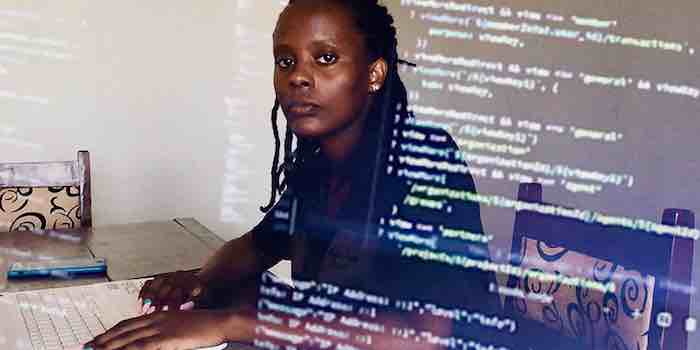By Joseph A. Klein, CFP United Nations Columnist ——Bio and Archives--March 9, 2023
World News | CFP Comments | Reader Friendly | Subscribe | Email Us

About 1,800 people gathered to mark International Women’s Day at the United Nations on March 8th. “The United Nations is proud to stand with women and girls everywhere in breaking down the barriers that hold all of us back,” Mr. Courtenay Rattray, UN Secretary General Antonio Guterres’s Chef de Cabinet, said on behalf of the Secretary General. “Together, let’s realize a more inclusive, just, and prosperous world for women and girls, men and boys, everywhere.”
But the United Nations system is having a problem deciding what it means to be a “woman.” And a side event praised the treatment of women in the Muslim world rather than confront head-on the reality of gross violations of women’s human rights in Muslim-majority countries.
At the March 8th press briefing at the UN, I asked Farhan Haq, Deputy Spokesman for the Secretary General, whether the Secretary General believes that individuals who were born biologically as males but who identify as women should be considered women for the purposes of International Women’s Day. Here is his answer verbatim:
“I believe that's a matter that's being discussed by different parties. I wouldn't venture an opinion on that at this stage. Have a good day.”
Canadian Prime Minister Justin Trudeau did not have this problem. He claimed on Twitter that "Trans women are women" during his own celebration of International Women’s Day.
In his address to the Commission on the Status of Women on March 6th, Secretary General Guterres said that progress in gender equality “won over decades is vanishing before our eyes. Gender equality is growing more distant. On the current track, UN Women puts it 300 years away.” Concluding his remarks, the Secretary General declared: “Together, let us push back against the push back on women's rights, against misogyny and forward for women, girls, and our world.”
But other than singling out Afghanistan under Taliban rule for the atrocious treatment of women in that country, Secretary General Guterres talked in generalities. He made no mention of the Iranian regime’s crackdown on women, for example.
On International Women’s Day itself, Foreign Minister Bilawal Bhutto Zardari of Pakistan led an alternative reality side show at the UN entitled “Women in Islam: Understanding the Rights and Identity of Women in the Islamic World.” Foreign Minister Zardari claimed that “the issue of perception that Muslim women are oppressed and discriminated against is misplaced.” He tried to portray Islam as practiced in most Muslim-majority countries, including his own country of Pakistan, as enlightened and non-discriminatory in their treatment of women.
In a video-recorded speech, the Secretary General of the Organization of Islamic Cooperation (OIC), Mr. Hissein Brahim Taha, claimed that Islam has always upheld the dignity and rights of women to participate in all spheres of life including their full rights for education, work and social participation.
Qatar’s Assistant Foreign Minister Lolwah bint Rashid Al Khater claimed that Qatar has emphasized the importance of empowering women in all fields, pointing out that Qatar’s Constitution enshrined the principle of equality for all citizens.
The apologists for countries governed under Islamic law are living in a fantasy world when it comes to the treatment of women in these countries. The truth is that women in most Muslim-majority countries have a very unequal status compared to men, based on Sharia law precepts.
Support Canada Free Press

While legal protections for women have improved in Pakistan at least on paper, for example, Pakistan’s Global Gender Gap Index 2022 ranking, according to the World Economic Forum, was 145th out of 146 countries surveyed. Only Afghanistan was worse.
Chad, OIC Secretary General Taha’s home country, ranked 142nd.
As for Qatar, Human Rights Watch has reported that women “must obtain permission from their male guardians to marry, pursue higher education on government scholarships, work in many government jobs, travel abroad until certain ages, and receive some forms of reproductive health care.”
In Saudi Arabia, the birthplace of the Islamic Prophet Muhammad and the country that is considered the "home of Islam," women are still subservient to men in many aspects of their lives despite some recent modest loosening of the country’s male guardianship law.
The UN bureaucracy is unable or unwilling to even define a “woman” for the purposes of International Women’s Day observance and glosses over women’s inferior status in many Muslim-majority countries today. In this light, the strong words of support for equality of women and girls by senior UN officials ring a bit hollow.
View Comments
Joseph A. Klein is the author of Global Deception: The UN’s Stealth Assault on America’s Freedom.